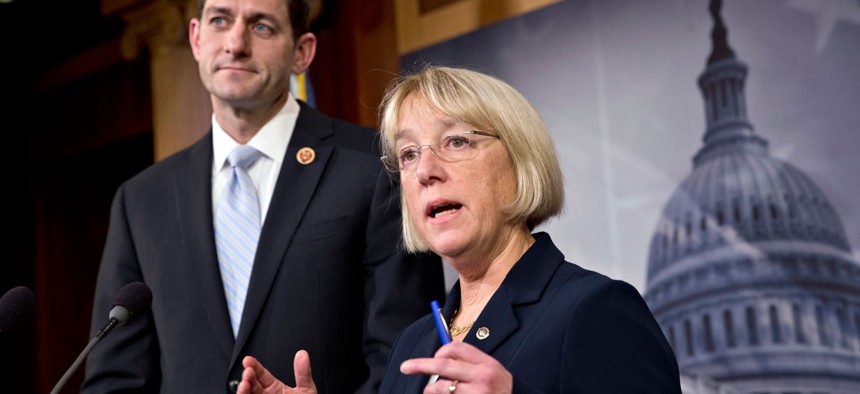Ryan and Murray’s Next Big Project: Better Use of Big Data

Rep. Paul Ryan and Sen. Patty Murray J. Scott Applewhite/AP File Photo
The budget wunderkinds want the federal government to use data to improve its efficiency.
House Ways and Means Chairman Paul Ryan and Sen. Patty Murray, who forged a major bipartisan budget deal in 2013, are on a new quest: harnessing big data to make the federal government run more efficiently.
The duo is re-upping its push for a bipartisan commission to explore how the federal government could make data better available to public and private researchers. Discussions with House and Senate government reform committee staffs have been positive, an aide said, and they have indicated that the bill could be marked up soon.
The panel would explore whether and how the federal government could create a clearinghouse for spending, tax, and survey data. The hope would be that government and non-government analysts would use the data to research how efficiently federal programs work and how they could be improved.
One example, per an aide: The Census Bureau conducts a regular household survey on welfare benefits, including food stamps. But it doesn't include administrative data from the Department of Agriculture on the food-stamp program. Bringing those two datasets together in the clearinghouse would theoretically provide a fuller picture of how the program is working.
The 2014 version of the Ryan-Murray bill didn't earn much public hoopla, but researchers at think tanks such as the Urban Institute praised the bill when it was introduced in November. Obama also endorsed it in his FY 2016 budget released in February.
The commission, for which Ryan and Murray request a $3 million budget, would have 15 months to compile its recommendations and would need 75 percent of its members to sign off on its report before sending it to the president.
President Obama, House Speaker John Boehner, Minority Leader Nancy Pelosi, Senate Majority Leader Mitch McConnell, and Minority Leader Harry Reid would each be allowed to appoint three members.
"If we want to make government more effective, we need to know what works," Ryan said in a statement. "Too often, Washington rewards effort instead of results, and this commission will help us change the focus. So I want to thank my good friend Senator Murray for her hard work on this bill and urge all my colleagues to support it."


